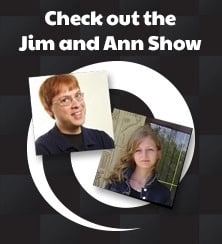Last week I was in NYC speaking about influencer marketing and how it helps creating stronger content assets for your blog. Here’s my recap of the presentation:
First of all, content marketing is ALL about influencing – not just your potential customer – but also about influencing the influencer, i.e. those people who can effect buyers’ decisions.
And what’s a better way to accomplish that than to actually get that influencer create content for you?
According to the Association of National Advertisers (ANA) report, The Value of Influencer Content 2017 from Linqia, 57% of marketers indicated that influencer-powered content outperforms brand created content:
- Influencer-powered content is more authentic and trusted than brand-created content (because influencers are real people who have already earned that trust);
- Influencer-powered content sparks audience engagement (because people engage with people)
- Influencer-powered content provides higher ROI (because it’s more trusted and authentic and spread easier with help of participating influencers)
A few case studies and examples:
- ShaeBaxter: Here’s how an influencer-powered articles led to over 80% boost to the blog’s organic search engine traffic
- Robbie Richards: Here’s another case study on creating an influencer-powered roundup that got the host 11,065% more organic traffic in 6 months
- And here’s how Sam Obrart increased his inbound links by 310% in 21 days by having influencers contribute for his blog
Tools to Identify Influencers:
- MyBlogU is always a place where I start my outreach because it’s full of people who are actually eager to participate in your content ventures. When you have a few participating experts, it’s easier to branch out to more influencers. MyBlogU also helps with many other stages of putting collaborative content together: It allows bulk emailing and auto-notifies participants of published piece.
- A good place to find more influencers is BuzzSumo: Search your primary topic of your future article and use “Interviews” filter to find people who don’t mind contributing their answers to blog roundups.
Ways to Keep in Touch with Influencers:
- Use Twitter lists to monitor all of them on Twitter. For example, back when I was managing contributors for Search Engine Journal, I made sure I added each of them to a separate Twitter list. Then, using my Twitter manager Tweetdeck I was able to add a separate column to monitor that list and made it part of my weekly schedule to engage with them on Twitter.
- Use Private groups (Facebook, Slack, etc.) to keep in touch with those influencers on a regular basis. For example, we invite all the influencers we interview on #VCBuzz Twitter chats to a Private Facebook group where we encourage them to ask for help, shares or anything else they may need.
- Emails! Yes, emailing is still the best way to get in touch, if you use it smartly. Personalize your emails and use smart follow-up templates to manage your communication with influencers.
Common Mistakes When it Comes to Influencer-Driven Content
- Doing too many expert roundups: An expert roundup is the most popular type of content collaboration which is quickly becoming overused. It’s simple to replicate the tactic, so too many marketers and media outlets are jumping into the bandwagon.
- Scaling too much: it’s really more about relationships than the content you get. Instead of trying the tactic too often, try investing more time into managing those relationships, connecting to those influencers more, interacting with them more, making sure those relationships will become stronger.
- Failing to find an interesting and engaging topic for your content. Content is still king! Influencer-powered content has been widely used recently, mostly by people who don’t get it. They don’t get personalized outreach and relationship building, but more importantly they don’t get what lies at the foundation of a successful influencer-powered content. The key to influencer-powered content is finding an interesting and engaging topic. In fact, most people who plan to include influencers into their content marketing strategy think too much about influencers and totally forget about a more important part of the process: What the content is actually going to be about. It’s still content, so unless you find an interesting question to discuss in your future article, you’ll see:
- Most influencers ignoring your pitch
- Much fewer shares from social media users
Invest a lot of time in topic brainstorming, focus on current trends, events and interesting tools. Avoid boring topics everyone else is covering.
Bottom line
Stand out. Don’t do what other people are doing. Play with formats and topics. Note that mega live show example from David Bain in the deck above? No one did that before in our industry, so it did very well! Think out of the box!
Save
Save
Save
Save
Save
Save
Save




3 Responses
Influencer marketing is like the new new of affiliate marketing nowadays. Through discovery, I learned Instagram and Pinterest is the ideal place to start influencer marketing. The good thing marketing with influence on Instagram is you don’t even need a website or blog. Just upload a photo and start writing IG posts with relevant hashtags in it and in due time, they’ll check out your profile. Pinterest allows you to place a link in your pins which makes rich pinning better for Pinterest influencer marketing. Either way you look at influential marketing on social media, content is and always will be king.
Thank you for this great piece of information
I have to admit I am slacking in using Ingram, and a few other social networks for influencer marketing.
Comments are closed.